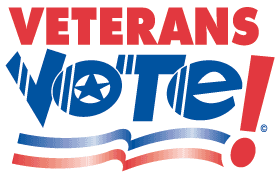 |
|||||||||||
|
July/August 2012
Get Off Your Assets: How To Participate In The Political Process BY RIC DAVIDGE, CHAIR I am often asked, “Why is VVA so political?” What people are most generally questioning is “Why is VVA so actively involved in what Congress or a State Legislature is doing?” At its soul, VVA is an activist organization. That is how we began and it’s who we continue to be. Being “active” in political matters is how we change the direction of our governance and our communities. We all remember the political decisions that sent us to war, restricted how we fought that war, and set up the circumstances of what we faced when we came home. Our choice is to be involved and attempt to change direction—or to at least point to a direction that is in our collective benefit and usually also is to the general benefit of all veterans and their families. This requires us to be “politically” active. As I often point out, there is a difference between the war and the warrior. There is a difference between those who decide the nation must go to war and those Americans sworn to serve—those who guard America and human freedom. Too many people did not understand this difference during and after the Vietnam War. But that has changed. And it has changed in large part because of what VVA has done “politically.” The very notion of America is based on bottom-up governance. The people hold the power to choose those whom they allow to govern. Unfortunately, many have all but forgotten this. As a community of those empowered to choose, most now stay home. According to the Congressional Research Service, 1966 was the first year in which the majority of those eligible to vote did not. Since then, those entrusted with the greatest power have chosen not to exercise it. We wonder what is wrong with our political system? It is simple. When citizens choose not to exercise their power, a power void is created—a void now filled by special interests and professional politicos. “ “My vote doesn’t really count.” “My vote won’t change anything.” “There is really no difference in the two parties.” These are often-stated excuses for not voting, and they’re wrong. It’s not just that you need to vote. You also need to be involved in the selection of candidates so you have a real choice. You have to get to know the candidates—personally—face to face. Yes, this takes time, but it makes a huge difference. I hate grip-and-grin events. I prefer a face-to-face in a small group around a dinner table. “But a candidate won’t come to my house for dinner,” you counter. Have you asked? You might be surprised. Especially if you get a few friends to participate. This is what I have been doing for a long time. It works. Candidates usually accept and will sit there for hours and face some uncomfortable questions. If you also suggest that your friends come and contribute before or after the meal, you will get even more candidates to the table. Start with local candidates for statewide or local office. Ask early in the campaigns and they will be there. I do this with U.S. Senators, members of Congress, mayors, governors, and state legislators. They all show up, and they all say afterward that it was one of the best things they’ve done in the campaign. There is just something different that happens when people sit down and have a meal together. Yes, it may start off stiffly, but everyone soon relaxes and gets open and friendly. I’ve seen red faces at the table, both in citizens and in candidates. But when it was over, it always worked. Ask the hard questions. Ask what they plan to do. Then ask how they plan to do it. Most candidates will tell you what, but few really know how. You need to get you off your assets and get into the process. If we who were empowered by those who created this country do not exercise that power, then the construct fails. It is up to us. I’m a member of VVA because VVA is an advocacy organization. We are “political,” but not partisan. We do our homework. We meet face-to-face with any candidate who asks or is willing. We don’t endorse, but we sure as hell educate them. Vote. But get to know all the candidates. Talk to anyone who will listen. If you need help, ask. We at Government Affairs will help.
|
|||||||||||
| |
|||||||||||
|
|||||||||||
8719 Colesville Road, Suite 100, Silver Spring. MD 20910 | www.vva.org | contact us |
|||||||||||









 Veterans Vote” was a bumper sticker VVA used to distribute. I wish we still did. I also wish all veterans would vote, but alas, they do not.
Veterans Vote” was a bumper sticker VVA used to distribute. I wish we still did. I also wish all veterans would vote, but alas, they do not.